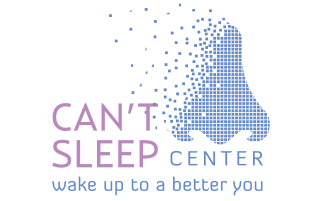If you have mild to moderate sleep apnea, some changes in your behavior and lifestyle can help you improve your condition. Your sleep specialist might recommend to:
- Stop smoking
- Lose weight
- Avoid alcohol and sleeping pills
- Sleep on your side
If none of these solutions help, you will be prescribed a medical solution. Below are the most popular ones.
The CPAP (Continuous Positive Air Pressure) machine is known as the “gold standard” in OSA treatment. To use it, the patient has to wear a tight nose mask strapped to the head. The mask is connected by a hose to an air pump. When switched on, the machine forces oxygen into the airway preventing apneic episodes.
CPAP is extremely effective but not everyone can tolerate it and some people are not physically capable of using it. According to Sleep and Health Journal, CPAP compliance is only 45 percent. This means that more than half of all patients cannot (or do not) want to use this device.
The biggest complaint about CPAP is that it often causes side effects like:
- voice changes
- skin irritations
- nose and throat dryness
- headaches from the strap around the head
- tinnitus (ringing in the ears)
- difficulty getting to sleep
- sinus infections
Surgery
This is the most common procedure. If you decide to undergo UPPP, the surgeon will remove excess tissue at the back of your throat to expand the airway. This might include the removal of tonsils, adenoids, part of the soft palate and nasal polyps (if present).
What to consider before choosing this type of treatment:
- Cost. In California, the UPPP procedure can cost you anywhere between $2,000 and $10,000.
- Effectiveness. Most sleep specialists will recommend this procedure as a last resort because success is not guaranteed. In 50 to 70 percent of all cases, sleep apnea comes back after a certain amount of time.
In severe cases of sleep apnea, a pacemaker-like device can be installed in your chest. This device monitors your breathing and stimulates the throat muscles to maintain steady airflow while you’re sleeping.
What to consider before choosing this type of treatment:
- Cost. The implants are priced at $20,000, not including the cost of the procedure. Luckily, some private insurance companies cover them.
- Risk of complications. Although the procedure is minimally invasive, you might feel some discomfort and there is a small risk of infection.
Over-the-counter Mouthguards
There are a number of mouthguards or mouthpieces sold without a prescription. These are not considered medical devices and they are not FDA approved for sleep apnea. While some of these devices may help you “fix your snoring problem”, they are not considered a sleep apnea treatment option. If you are a habitual snorer and you believe you might have sleep apnea, contact a sleep specialist. Trying to solve the problem on your own may make it worse.
Oral (also dental) appliances are an effective, non-invasive alternative to CPAP. The American Academy of Sleep Medicine (AASM) has approved over 100 oral appliances as a 1st line treatment for mild to moderate OSA. Oral appliance therapy can also be successful in 50% of all severe cases of sleep apnea. If you do not respond to CPAP therapy, you can consult a Dental Sleep Specialist about oral appliance therapy.
Oral appliances for sleep apnea are worn in the mouth. They keep your lower jaw slightly forward to ensure the airway stays open while you sleep. Unlike over-the-counter mouthguards, oral appliances are fitted to your jaw by a dentist certified in Dental Sleep Medicine. This ensures maximum comfort and better results.
Dental devices for sleep apnea are a very popular treatment option for a number of reasons:
- Comfortable. No machine, no mask. You can eat and drink with your oral appliance.
- Covered by insurance. Oral appliances are covered by most medical insurances.
- Easy to get used to. It takes 2 weeks on average to grow accustomed to an oral appliance (compared to 6 months for CPAP).
- Plenty of options. With over 100 FDA approved dental devices, your dentist can easily help you find the one that works best for you.
- Non-invasive. Oral appliances do not require a surgical intervention.
- Discreet. Many patients and their sleep partners complain about the noise produced by a CPAP machine. Oral appliances are silent and hardly noticeable.
- Portable. You can travel with your oral appliance anywhere, including on a plane.
- Immediate results. Most patients report improvement on the next day.
